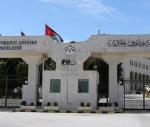You are here
Revisiting the IMF formula
Feb 13,2018 - Last updated at Feb 13,2018
No matter how euphemistically expressed, the International Monetary Fund's (IMF) formula which the consecutive Jordanian governments have been religiously adapting is bad news. Let me explain why.
The GDP over the period of 2011-2017 has been growing only in nominal terms. Most of the growth has been generated by the increase in population and foreign aid. Now that the flow of refugees is abating and the sources of foreign aid are drying, we expect more difficult years to come.
The supply of foreign exchange to the government is generated by bigger doses of foreign borrowing. Thus, the deficit in the balance of payments is consistently negative as measured by the current account. Had it not been for remittances, loans borrowed and some fluctuating inflow of foreign investments, the deficit would have registered record-high levels. Yet, it must be acknowledged that Jordanian imports have been decreasing in Jordanian dinar value because the Jordanian dinar has been appreciating vis-à-vis the euro, pound sterling and yen until September 2017, which made the value of our imports shrink in dinars.
If we look out the public debt, which the IMF's recipe tries to decrease as a percentage of GDP, we get a more disturbing picture. The size of net internal debt jumped from JD11.7 billion in 2011 to JD14.5 billion at the end of 2017, and was constantly increasing during this period.
As for foreign debt, including guarantees, it stood at JD4.9 billion in 2011 and remained at the same rate in 2012, but soared to JD10.9 billion in mid 2017.
Thus, total debt increased between 2011 and mid 2017 from $16.6 billion to $25.8 billion, or faster than the growth in GDP, which grew in nominal terms from JD22 billion in 2012 to JD27.5 as estimated at the end of 2017. During this period, the debt grew by 55 per cent, while nominal GDP grew by 27.7 per cent. Thus, nominal net public debt grew twice the growth in nominal GDP. This explains why the debt/GDP ratio is very high, standing at 99 per cent.
If we calculate the pain that Jordanians have endured, we have to raise the question of why and for what purpose? We use the same recipe, same utensils and same ingredients and then we have the audacity to expect a different meal!
After almost seven years of haggling with the IMF, we ended up with higher debt, lower real per capita GDP and less happiness. We should not care who is playing hard ball with us at the IMF, whether Lebanese or Latin American, we need to address the IMF again.
I shall repeat once and again what I have been saying. We need to renegotiate the total terms of the agreement with the IMF. We need a different approach. The current modus operandi will only take us nowhere, except rendering us in a worse position.
I negotiated with the IMF in the 1980s, 1990s and for a very brief period in 2016. They are wrong, and we need to make our case succinctly, bravely and squarely.
We need a two-year grace period to stimulate growth. What in the world would happen if we reduce our debt in 2021 to 85 per cent instead of 77 per cent or so? If we manage to improve growth and control our spending, we will be on our way to economic salvation.
If we, however, continue to be dragged by the IMF white collar experts we will continue to suffer wider poverty, lower incomes, higher cost of living and more high-noon crimes.














